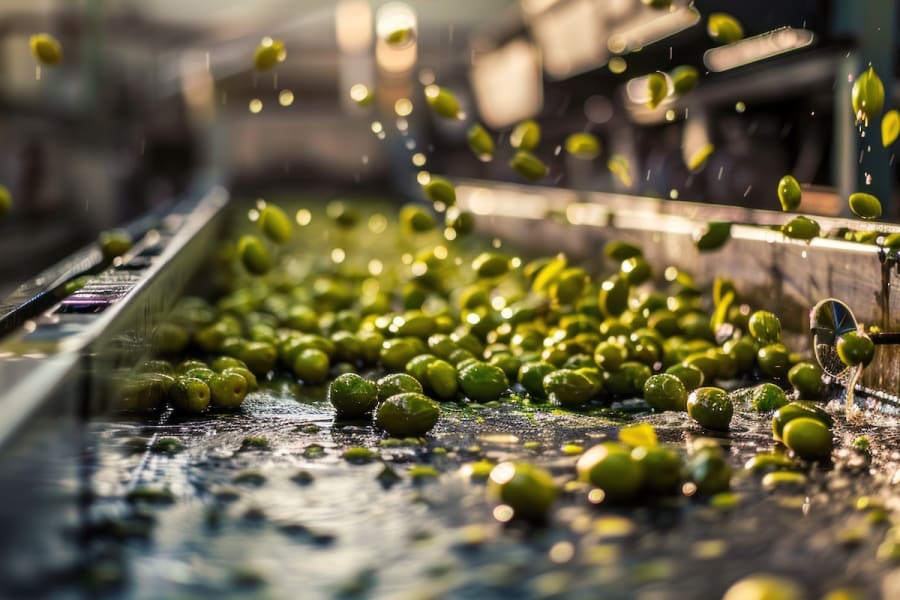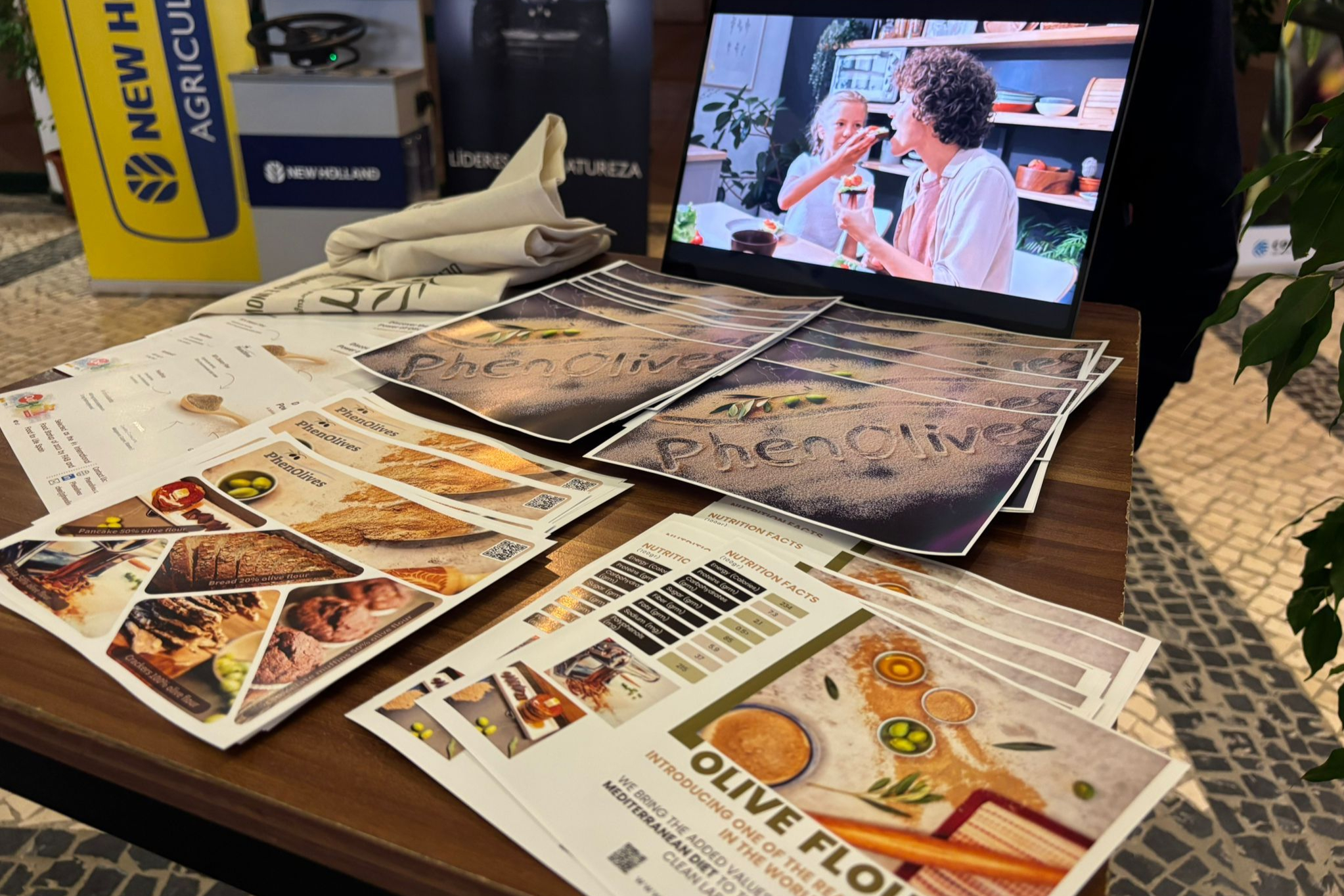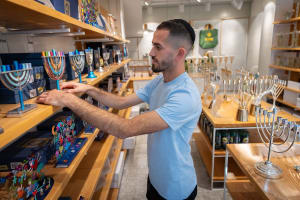Turning olive waste into wealth: Israeli startup transforms toxic byproducts into valuable resources

An innovative Israeli startup is transforming hazardous materials in the Mediterranean into valuable resources through an innovative new technology.
PhenOlives, based in Kibbutz Reshafim in northern Israel, has developed a system to convert olive pomace (the thick sludge left after olive oil production) into flour, clean water and antioxidant extract.
The company’s patented Total Solution Impact (TSI) system uses 100% of the pomace to create three products with high economic and nutritional value, instead of leaving behind toxic residue.
Olive pits, PhenOlives' first product, are sold to polymer companies that blend 30% of the material into their polymers.
“After testing over 300 types of agricultural waste, companies found this one gave their products a natural wood-like color and made them both recycled and recyclable,” Lev Ari said. “These materials are in high demand in markets such as IKEA, even though they cost more than conventional ones.”
The second product is olive flour, made from the pulp of the olives. “This gluten-free flour received ‘novel food’ approval from Israel’s Ministry of Health last year,” Lev Ari explained. “It’s rich in fiber, low in calories, carbohydrates and sugars, and has a neutral flavor that makes it perfect for the health and superfood markets.”
The third is a treatment for the highly acidic and toxic olive mill wastewater. The treatment process separates and transforms the wastewater into clean water and a highly concentrated antioxidant extract. The clean water can then be reused in more olive oil production, while the extract, containing powerful antioxidants like polyphenols, tyrosol and hydroxytyrosol, is sold to the nutritional supplement industry.

Lev Ari said, “We take responsibility for the market, produce the end products and sell them through a B2B model instead of having each olive mill compete to sell its own products.”
The company plans to forge strategic partnerships and build more processing units across Europe.
“The goal,” Lev Ari explained, “is to turn Europe’s vast pomace reservoirs into usable water sources for summer irrigation. The antioxidant concentrate, or what we call ‘black gold,’ is one of the most valuable outcomes.”
PhenOlives’ business model includes the acquisition and management of pomace from olive mills, paying them for the waste and covering operational costs. “This saves the mills the trouble of disposal while creating an additional source of profit,” Lev Ari said.
There are logistical and regulatory challenges the company faces, especially in Spain, Portugal and Greece, where olive oil is a traditional industry. “Our solution must be installed directly at the mills,” Lev Ari noted. “We plan to establish a European subsidiary and continuous production lines.”
Development of processing lines for pits and flour has been completed, and PhenOlives is now building the world’s first continuous production facility in Israel. The company is currently raising €3 million ($US3.46 million), with €1 million ($US1.15 million) already secured from the Yizra’el Group, allowing the construction to begin.
“The additional funds will go toward completing R&D for the wastewater treatment phase and bringing the products to market,” Lev Ari said. “Our initial focus is on northern Europe and the United States, which are the largest potential markets. While government grants have been limited, our regional partners, Inno Valley and Yizra’el Group, have believed in the project and invested.”
Most venture funds in Israel favor robotics and software, making it vital for PhenOlives to find investors who understand the agricultural ecosystem and see the long-term value.
The system that the company has developed makes a significant impact on the environment by mitigating toxic pollution of the soil and groundwater caused by the olive oil byproduct.
“It’s either spread on the land or transported to hazardous waste sites...” Lev Ari explained. “Our technology separates clean water that can be reused in production and significantly reduces pollution levels, nearing regulatory standards.”
The system also replenishes key nutrients like nitrogen and phosphorus to the soil through irrigation water, guaranteeing the solution is circular and sustainable. “We’re not creating new problems further down the chain,” he added. “Our solution reduces industrial waste by 20% to 30%, and that’s just the beginning.”

Is All Israel News’ faithful reporting important to you? Be part of it—help us continue by becoming a $5/month supporting partner.

The All Israel News Staff is a team of journalists in Israel.
You might also like to read this:

















